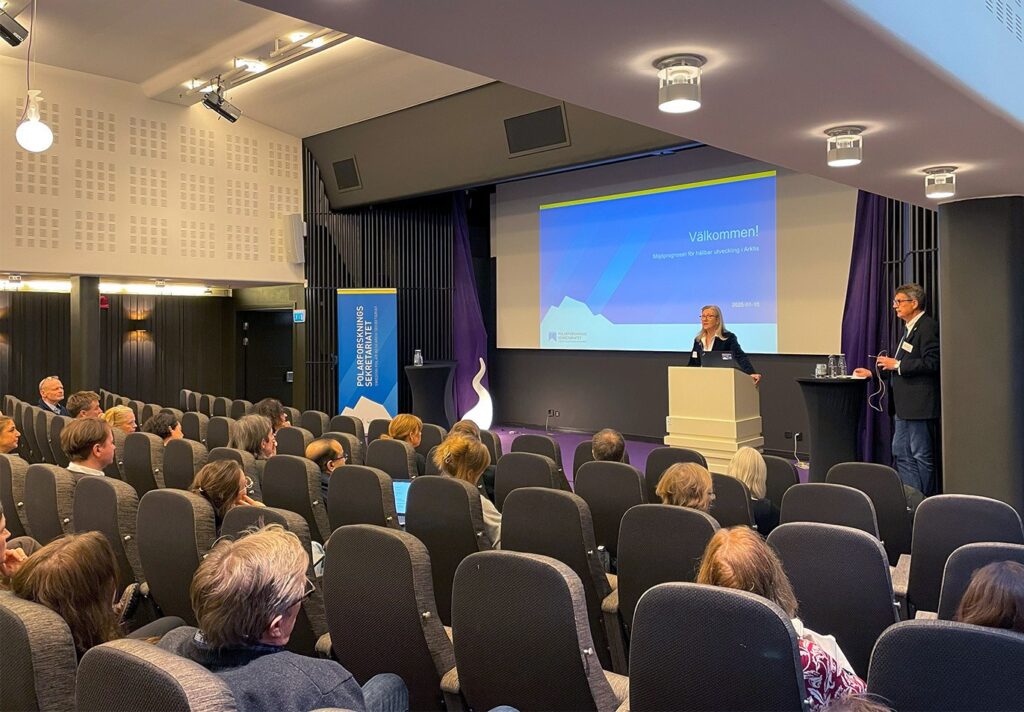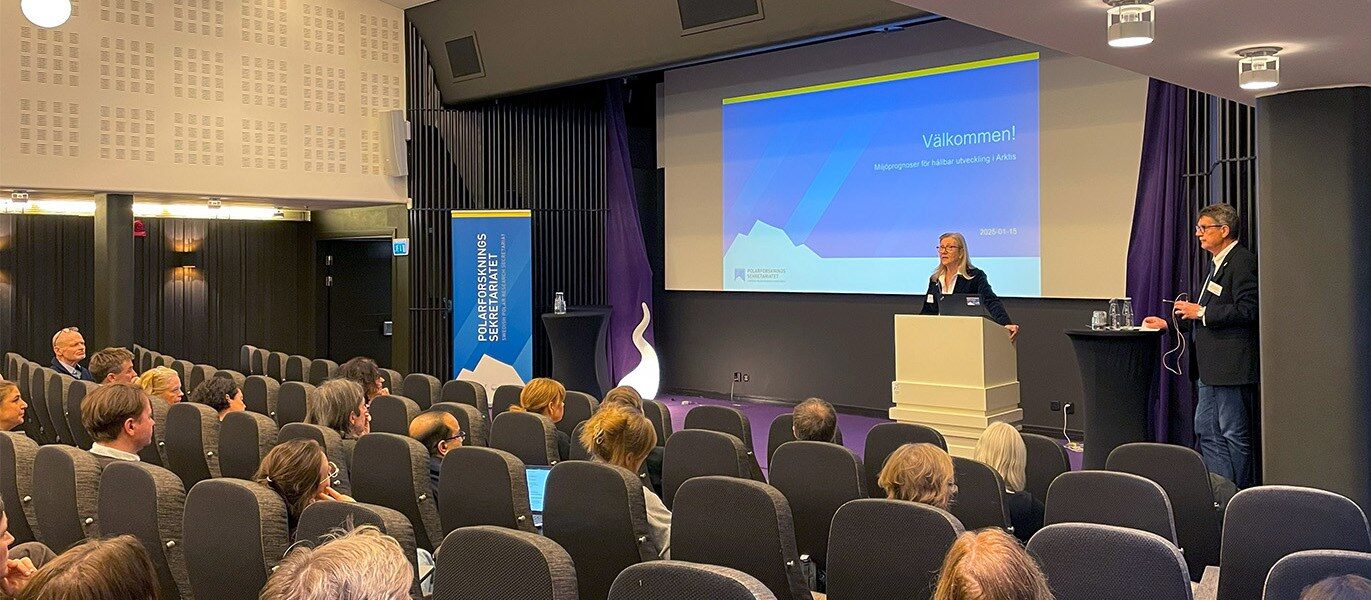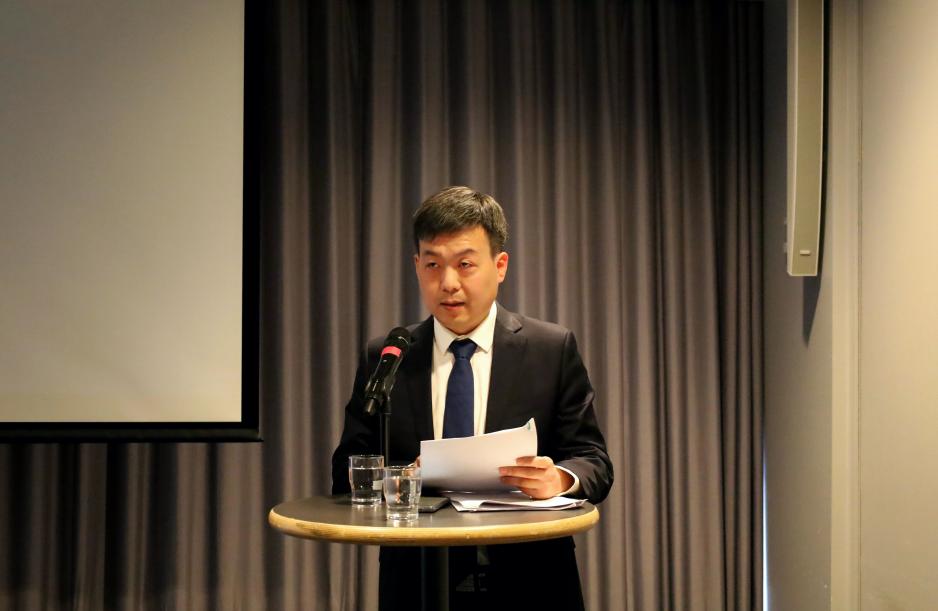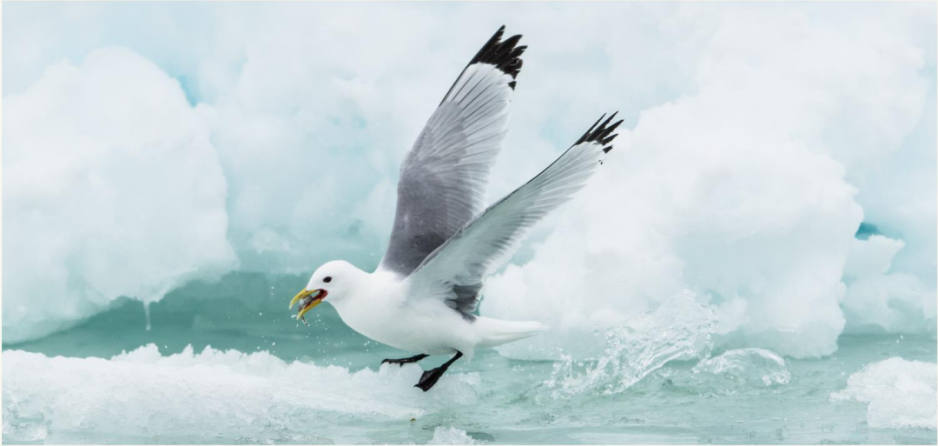On January 15, 2025, the Polar Research Secretariat organized a knowledge seminar on environmental forecasts for sustainable development in the Arctic at the World Trade Center in Stockholm. The seminar discussed the importance of and opportunities for observations of the environment in the central Arctic.

The overarching question was how observations can improve climate and weather models and form a basis for decision-making for sustainable social development. Approximately 50 people participated in the seminar, which was led by Michael Tjernström, Stockholm University. In addition to seven insightful presentations, the seminar became a rewarding forum with conversations on science and policy. The Polar Research Secretariat would like to thank everyone who participated and looks forward to more dialogues and future collaborations!
Key messages and conclusions from the seminar
Forecasts and models for climate and environment in Arctic
Forecasts and simulations with different models are crucial for understanding climate and environmental changes in the Arctic. The changing climate also creates a greater need for reliable weather forecasts to increase security and enable sustainable growth. Data from observations is essential to ensure reliable results.
Improving computer models and data assimilation for Arctic
Computer models are central to environmental and climate monitoring and weather forecasts. Still, all parts of the models need to be improved: the observations, the forecast models and the data assimilation. Data assimilation is a collective name for methods where models and observations are used together for an optimal result. Still, the methods can be improved, for example, with the help of artificial intelligence and machine learning. Still, more observations are needed and these data must also be made available openly and coordinated.
Observation network and expeditions
The observation network in the Arctic is limited compared to more populated areas but can be optimized through better utilization and well-planned expeditions. Expeditions that are equipped to collect data over time and space are an important component of this work.
Satellite technology and calibration
Satellites such as the Arctic Weather Satellite (AWS), developed by ESA, will improve data availability but still require ground-based observations for calibration, evaluation and interpretation. These observations are crucial for effective data assimilation.
The importance of icebreaker expeditions
Icebreaker expeditions, such as the icebreaker Oden, are invaluable for collecting observations. Maximizing data collection of key variables during these expeditions is crucial, regardless of their main purpose. However, historical contradictions between monitoring and research have been an obstacle to this. In order to expand and continuously improve observations, a new Swedish research icebreaker is required to replace Oden.
Collaboration in data collection and measurement methods
Data collection and measurement methods can be improved through national and international collaboration. This would strengthen research platforms such as the icebreaker Oden in terms of collecting more and more parameters of observational data.
The role of the Arctic Council
The Arctic Council plays an important role in compiling research and observations to support political decisions. After a break due to Russia’s invasion of Ukraine, the Council’s working groups have resumed their work. The AMAP (Arctic Monitoring and Assessment Program) working group focuses on a number of areas, such as chemical substances, microplastics and radioactivity, where better observational data are needed. This could be improved with more thoughtful cooperation.
Sweden’s leadership in Arctic research
Access to the icebreaker Oden and other infrastructure has given Sweden a unique opportunity to take a leading role in Arctic research. With continued national investment in and cooperation between research, environmental monitoring and infrastructure, Sweden can continue to play a leading role in securing a sustainable future for the Arctic. There are opportunities for these issues to characterize Sweden’s chairmanship of the Arctic Council 2027–2029.
Presentations
“The Importance of Science Diplomacy”, Katarina Gårdfeldt, Director of the Polar Research Secretariat
Axel Wernhoff, Sweden’s Ambassador for Arctic Affairs
“What do we know about the state of the Arctic and how do we know it?”, Gunilla Svensson, Professor of Meteorology at Stockholm University
“What role can icebreaker expeditions play?” Åsa Lindgren, Polar Research Secretariat
“SMHI’s Arctic Work: Reanalyses, Oceanography, and Weather Satellites”, Swapan Mallick, SMHI
“Collaboration through AMAP: The need for observations of the Arctic environment for decision-making.” Karin Norström and Pelle Boberg, Swedish Environmental Protection Agency
“From observation to weather forecast, climate and environmental monitoring”, Linus Magnusson, ECMWF, European Centre for Medium-Range Weather Forecasts.




